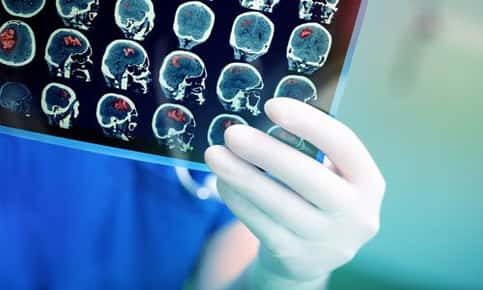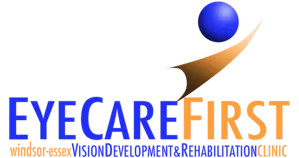
Has your vision or the vision of a loved one changed since suffering a stroke? Vision therapy may help you or your loved one regain some of the lost vision or make better use of your remaining vision.
How Does a Stroke Affect Vision?
A stroke occurs when normal blood flow to your brain is halted due to blocked or leaking blood vessels. The resulting brain damage often causes weakness or paralysis in parts of the body, difficulty with memory and speech, confusion and balance issues. Some people who've had strokes also notice a change in their vision.
Possible vision changes include:
- Problems with Your Binocular Vision. Binocular vision allows you to see a single image, despite the fact that each eye views a slightly different version of the same image. The brain combines the light impulses it receives from both eyes to create one clear image. If your binocular vision is affected as a result of a stroke, you may notice double vision, depth perception and balance problems, headaches, eyestrain and difficulty driving.
- Visual Field Loss. You may lose some of your peripheral, or side, vision following a stroke. Visual field loss may affect a half or a quarter of your visual field or may cause a round blind spot called a scotoma.
- Ocular Motor Dysfunction. The condition makes it difficult to track objects with your eyes smoothly. Ocular motor dysfunction can have a significant effect on your life, and may make it difficult to do many of the things you've always taken for granted, such as reading or even walking without stumbling.
- Strabismus. Strabismus, commonly called "crossed eyes," affects the alignment of your eyes. Strabismus isn't just a cosmetic issue, but can also affect your vision.
- Visual Perceptual and Processing Deficits. Your brain may have difficulty processing the light images it receives from your eyes and interpreting the information correctly.
- Inattention: When inattention occurs, you ignore objects in part of your visual field. If you empty the dishwasher, you may only remove dishes from the right section because you aren't aware that the left section is also full.
How Can Vision Therapy Help?
Although there may be nothing wrong with your eyes, your vision may still be limited due to damage in the parts of your brain that control vision. Just as you may need a little help learning to walk again, you may also benefit from vision therapy. The therapy enhances the connection between your eyes and brain and can improve many stroke-related vision problems. Vision therapists use a variety of devices and techniques to help you maximize your vision, such as games and activities, balance boards, prisms and special lenses.
In some cases, it may be possible for other areas of the brain to take over for the damaged sections. University of Rochester researchers theorized that it might be possible for the middle temporal region of the brain to carry out the visual functions of the damaged primary visual cortex. They asked study subjects who had suffered vision loss due to a stroke to view a series of dots that rapidly appeared and disappeared at various points.
Initially, the patients reported that they were aware of some sort of motion in the damaged part of their visual field, even though they couldn't identify the dots. After performing the activity for several months, their success rate increased from 50 percent to 80 to 90 percent. If you have a problem with your peripheral vision, you may participate in similar games and activities designed to expand your visual field.
Prisms lenses offer a simple way to improve binocular vision. The lenses bend light rays, which makes it easier for the eyes to work together. Prisms can be very helpful if you have double vision, inattention or depth perception problems. Some strokes affect the eye muscles, making it difficult for you to move your eyes efficiently. Vision therapy exercises and activities can help strengthen the muscles, reducing jerky eye movements and improving tracking.
Even if you don't notice a problem with your vision, you may still benefit from vision therapy. Balance issues, frequent headaches or dizziness may be subtle signs of a malfunction between your eyes and brain. Regular therapy sessions can help reduce or stop these unpleasant symptoms.
Are you concerned about a change in vision after a stroke? Vision therapy can help. Call us to schedule your first appointment.
Sources:
American Stroke Association: Vision Disturbances After Stroke, 11/15/16
University of Rochester Medical Center: Rigorous Visual Training Teaches the Brain to See Again After Stroke, 3/31/09
Science Daily: New Therapy Helps to Improve Stereoscopic Vision in Stroke Patients, 4/15/14
https://www.sciencedaily.com/releases/2014/04/140415084423.htm
National Stroke Association: Vision
http://www.stroke.org/we-can-help/survivors/stroke-recovery/post-stroke-conditions/physical/vision


